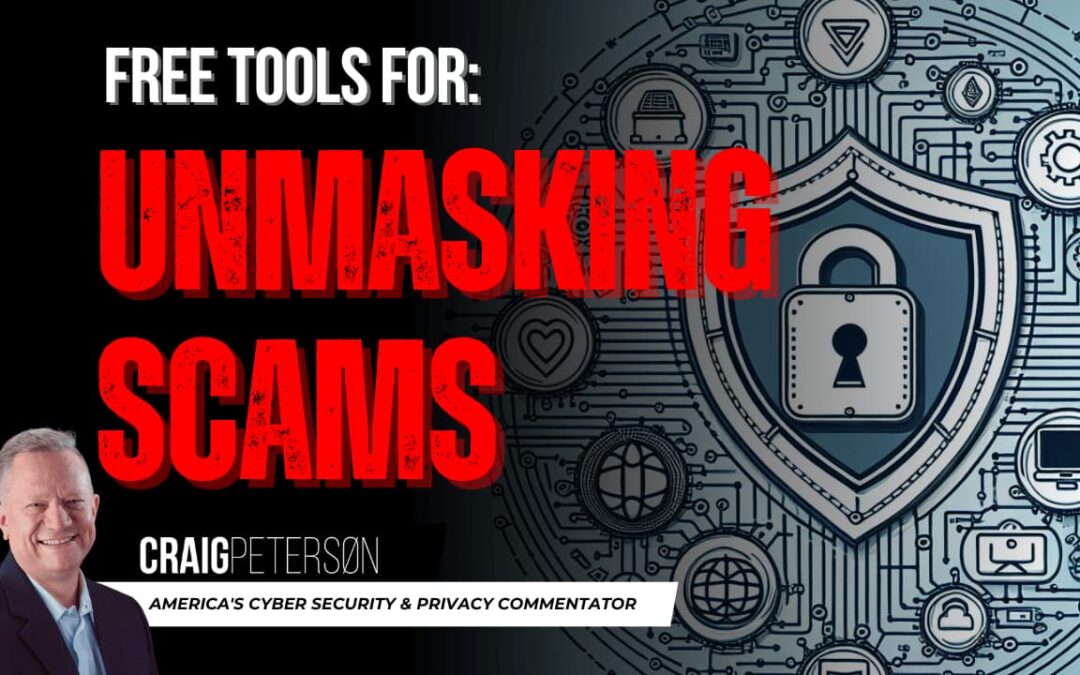Free Online Tools That Unmask the Masquerade of Scams
All right, folks, dealing with potential scams and phishing can be as tricky as trying to nail jelly to a wall. But guess what? There are some nifty tools out there that can be your very own scam-revealing superhero cape. And the best part? They’re as free as those little packets of ketchup at the diner. So, let’s pop the hood and see what tools can help you stay one step ahead of those crafty con artists. 🦸♂️🌐
Check That Link Before You Click
Before clicking on any link, it’s essential to verify its integrity to avoid falling prey to malicious threats. Thankfully, there are invaluable tools designed to help you do just that. VirusTotal serves as a robust platform that scans URLs and files against a comprehensive range of security databases, alerting you to any potential risks. Simply paste a suspicious link into VirusTotal, and it will reveal whether it’s safe or dangerous.
Another exceptional tool is PhishTank, which allows you to check if a URL is a known phishing site. Using PhishTank is akin to checking the weather forecast before heading out for a picnic—no one wants their online experience to be ruined by phishing scams. Both these tools are essential in maintaining a secure digital environment.
- VirusTotal: This gem of a site (https://www.virustotal.com/) checks URLs and files against a whole bunch of security databases. Paste that fishy link in there, and it’ll tell you if it’s safe or unsavory. Make sense?
- PhishTank: At PhishTank (https://www.phishtank.com/), you can enter a URL and see if it’s a known phishing site. It’s like checking the weather before a picnic. No one wants it to rain on their sandwich.
Email Analysis – Uncover the Hidden
Two indispensable tools can help you uncover hidden details behind suspicious emails. An Email Header Analyzer allows you to scrutinize the headers of any peculiar email to trace its true origin. This process debunks any illusions, proving that those scammers aren’t astronauts sending messages from the moon (since they’re no longer sending them from Nigeria). My favorite tool for this purpose is Microsoft’s Email Header Analyzer, which provides thorough insights into the email’s source.
Additionally, the humorously named “Have I Been Pwned?” offers an essential service for checking if your email address has been compromised in a data breach. Knowing whether your email has been pwned is a critical step in safeguarding your personal information, underscoring that awareness is indeed half the battle.
- Email Header Analyzer: Got a bizarre email? Look at its headers! There are plenty of free tools out there (just Google “Email Header Analyzer”) that will sniff out where it really came from. Because let’s face it, those scammers aren’t astronauts sending messages from the moon. I tend to use Microsoft’s tool (https://mha.azurewebsites.net/), which is a bit geeky but very detailed.
- Have I Been Pwned: With a quirky name that rings just right (https://haveibeenpwned.com/), this tool checks if your email has been part of a data breach. Because knowing is half the battle!
Whois Lookup – Who’s Behind That Domain?
How can you know who is behind a particular domain? Where it is registered? This is where Whois Lookup tools come into play, helping you unveil the ownership details of any given website. If you’re not a Linux CLI user, one of the most reliable resources for this purpose is Whois.net. By simply entering the domain name into Whois.net, you can access comprehensive information about the domain’s owner, registration details, and even contact information. If the details you uncover seem shady or suspicious, it’s a clear signal to proceed with caution. Utilizing tools like Whois.net ensures that you make informed decisions while exploring online domains.
- Whois.net: Curious who owns a domain? Just head over to Whois.net (https://www.whois.net/) and punch in that domain name. If the details look shadier than a mid-summer pine tree, steer clear!
Now, while none of these tools can promise 100% protection (let’s face it, not even superheroes get that), they’re definitely a solid line of defense. They’re like having a digital Sherlock Holmes in your corner—deducing the infamous from the legit.🕵️♂️
Remember, folks, these tools are not only effective but also straight-forward to use. They’re a critical part of your scam-busting kit. So before you entertain any online oddities, whip out these cyber-sleuthing skills and give ’em a go. And hey, when you spot that scam from a mile away, you’ll feel like a bona fide detective in the digital age. How would you do it?

